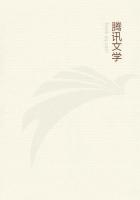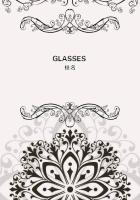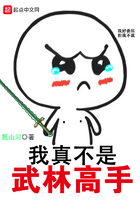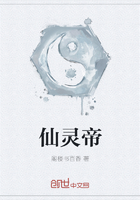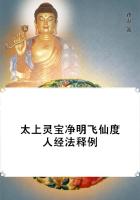Perhaps the most everyday instance of this point is in the case of women; and their strange and strong loyalty. Some stupid people started the idea that because women obviously back up their own people through everything, therefore women are blind and do not see anything. They can hardly have known any women. The same women who are ready to defend their men through thick and thin are (in their personal intercourse with the man) almost morbidly lucid about the thinness of his excuses or the thickness of his head.
A man's friend likes him but leaves him as he is: his wife loves him and is always trying to turn him into somebody else. Women who are utter mystics in their creed are utter cynics in their criticism.
Thackeray expressed this well when he made Pendennis' mother, who worshipped her son as a god, yet assume that he would go wrong as a man. She underrated his virtue, though she overrated his value.
The devotee is entirely free to criticise; the fanatic can safely be a sceptic. Love is not blind; that is the last thing that it is.
Love is bound; and the more it is bound the less it is blind.
This at least had come to be my position about all that was called optimism, pessimism, and improvement. Before any cosmic act of reform we must have a cosmic oath of allegiance.
A man must be interested in life, then he could be disinterested in his views of it. "My son give me thy heart"; the heart must be fixed on the right thing: the moment we have a fixed heart we have a free hand. I must pause to anticipate an obvious criticism.
It will be said that a rational person accepts the world as mixed of good and evil with a decent satisfaction and a decent endurance.
But this is exactly the attitude which I maintain to be defective.
It is, I know, very common in this age; it was perfectly put in those quiet lines of Matthew Arnold which are more piercingly blasphemous than the shrieks of Schopenhauer--
"Enough we live:--and if a life, With large results so little rife, Though bearable, seem hardly worth This pomp of worlds, this pain of birth."
I know this feeling fills our epoch, and I think it freezes our epoch. For our Titanic purposes of faith and revolution, what we need is not the cold acceptance of the world as a compromise, but some way in which we can heartily hate and heartily love it.
We do not want joy and anger to neutralize each other and produce a surly contentment; we want a fiercer delight and a fiercer discontent.
We have to feel the universe at once as an ogre's castle, to be stormed, and yet as our own cottage, to which we can return at evening.
No one doubts that an ordinary man can get on with this world: but we demand not strength enough to get on with it, but strength enough to get it on. Can he hate it enough to change it, and yet love it enough to think it worth changing? Can he look up at its colossal good without once feeling acquiescence?
Can he look up at its colossal evil without once feeling despair?
Can he, in short, be at once not only a pessimist and an optimist, but a fanatical pessimist and a fanatical optimist? Is he enough of a pagan to die for the world, and enough of a Christian to die to it?
In this combination, I maintain, it is the rational optimist who fails, the irrational optimist who succeeds. He is ready to smash the whole universe for the sake of itself.
I put these things not in their mature logical sequence, but as they came: and this view was cleared and sharpened by an accident of the time. Under the lengthening shadow of Ibsen, an argument arose whether it was not a very nice thing to murder one's self.
Grave moderns told us that we must not even say "poor fellow," of a man who had blown his brains out, since he was an enviable person, and had only blown them out because of their exceptional excellence.
Mr. William Archer even suggested that in the golden age there would be penny-in-the-slot machines, by which a man could kill himself for a penny. In all this I found myself utterly hostile to many who called themselves liberal and humane. Not only is suicide a sin, it is the sin. It is the ultimate and absolute evil, the refusal to take an interest in existence; the refusal to take the oath of loyalty to life. The man who kills a man, kills a man.
The man who kills himself, kills all men; as far as he is concerned he wipes out the world. His act is worse (symbolically considered) than any **** or dynamite outrage. For it destroys all buildings: it insults all women. The thief is satisfied with diamonds; but the suicide is not: that is his crime. He cannot be bribed, even by the blazing stones of the Celestial City. The thief compliments the things he steals, if not the owner of them.
But the suicide insults everything on earth by not stealing it.
He defiles every flower by refusing to live for its sake.
There is not a tiny creature in the cosmos at whom his death is not a sneer. When a man hangs himself on a tree, the leaves might fall off in anger and the birds fly away in fury: for each has received a personal affront. Of course there may be pathetic emotional excuses for the act. There often are for ****, and there almost always are for dynamite. But if it comes to clear ideas and the intelligent meaning of things, then there is much more rational and philosophic truth in the burial at the cross-roads and the stake driven through the body, than in Mr. Archer's suicidal automatic machines. There is a meaning in burying the suicide apart.
The man's crime is different from other crimes--for it makes even crimes impossible.
About the same time I read a solemn flippancy by some free thinker: he said that a suicide was only the same as a martyr. The open fallacy of this helped to clear the question. Obviously a suicide is the opposite of a martyr. A martyr is a man who cares so much for something outside him, that he forgets his own personal life.

